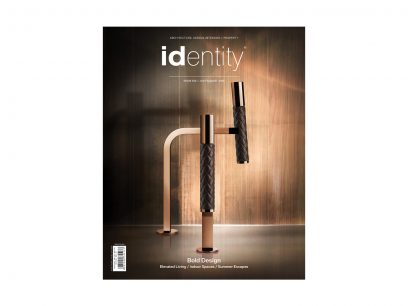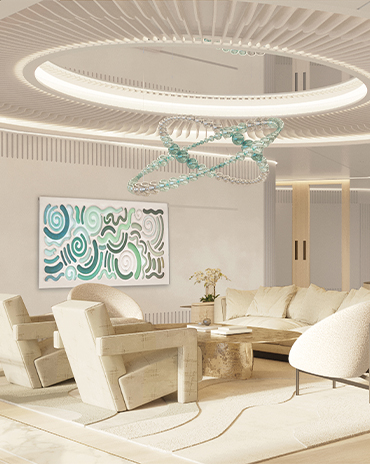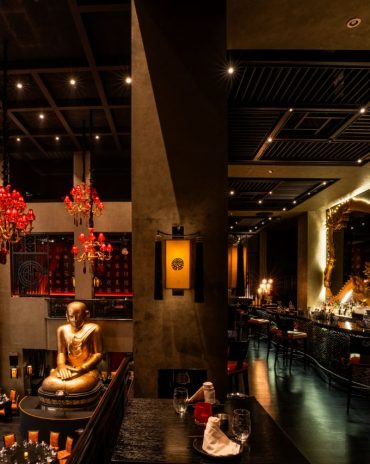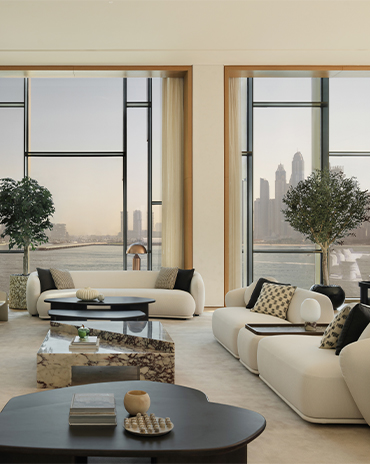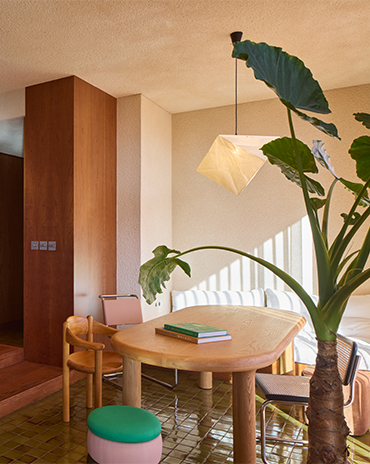Copyright © 2025 Motivate Media Group. All rights reserved.
Aïda Muluneh’s solo exhibition at Dubai’s Efie Gallery tackled topics of advocacy through surrealist photography
Efie Gallery is the first in Dubai to focus on African artists from the continent and the diaspora
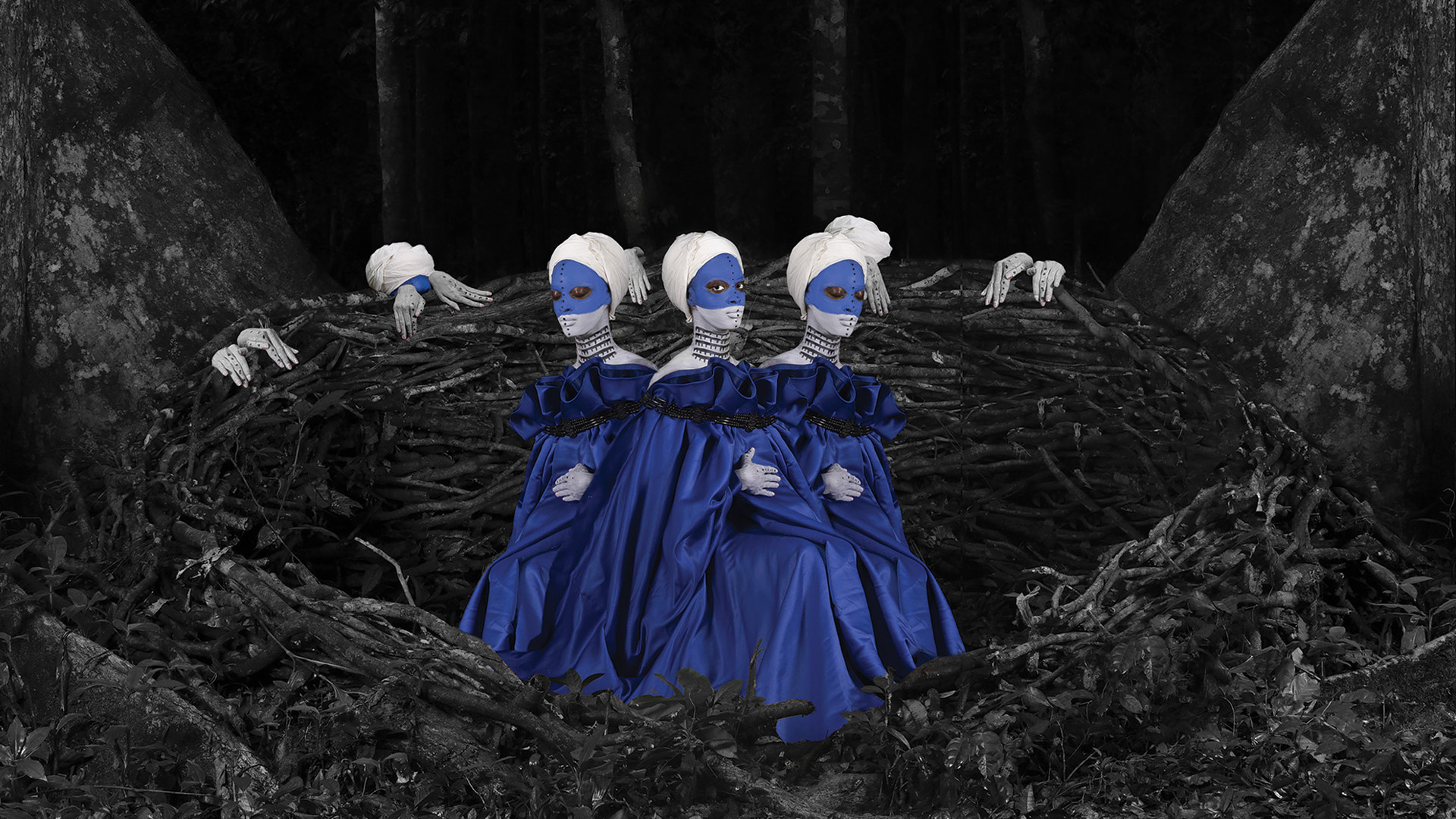
There is no mistaking the striking images of Ethiopian photographer Aïda Muluneh, which typically depict female figures with faces bearing masks, paint and intricate patterns, dressed in chromatic garments. While one may assume that Muluneh’s female protagonists are a representation of a surrealist world of fantasy, that would only be half true. Her visual expression is often a reflection of her own personal experiences and explores both the realities and fictions of post-colonial Africa, while drawing the viewer towards topics surrounding human rights, the environment, conflict and health.
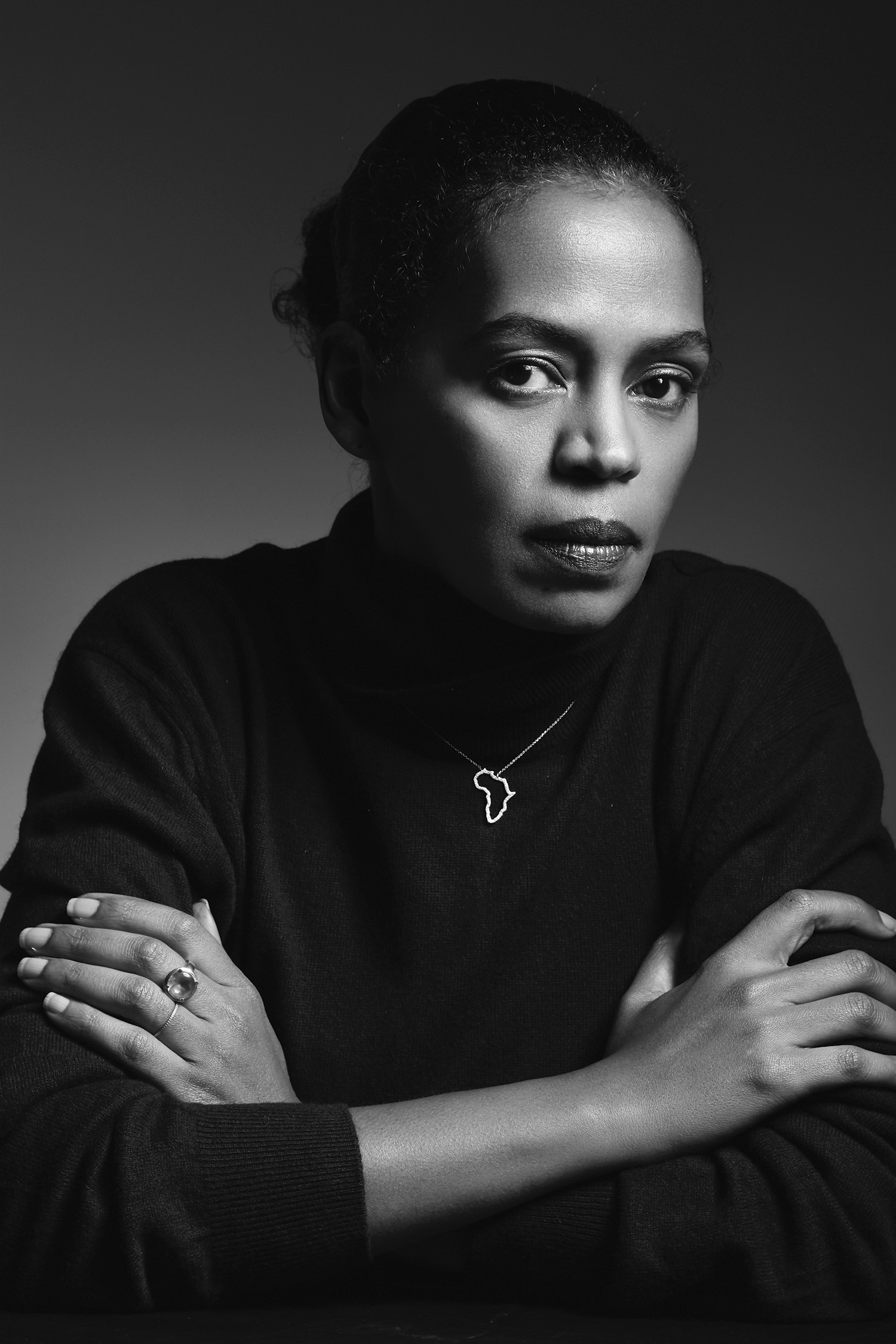
Aida Muluneh ©Mario Epanya. Courtesy of Efie Gallery
Muluneh also explores the African female identity within the colonial experience while interrogating the foreign gaze on African women and advocating for the development of photography in the continent and its impact in shaping cultural perceptions.
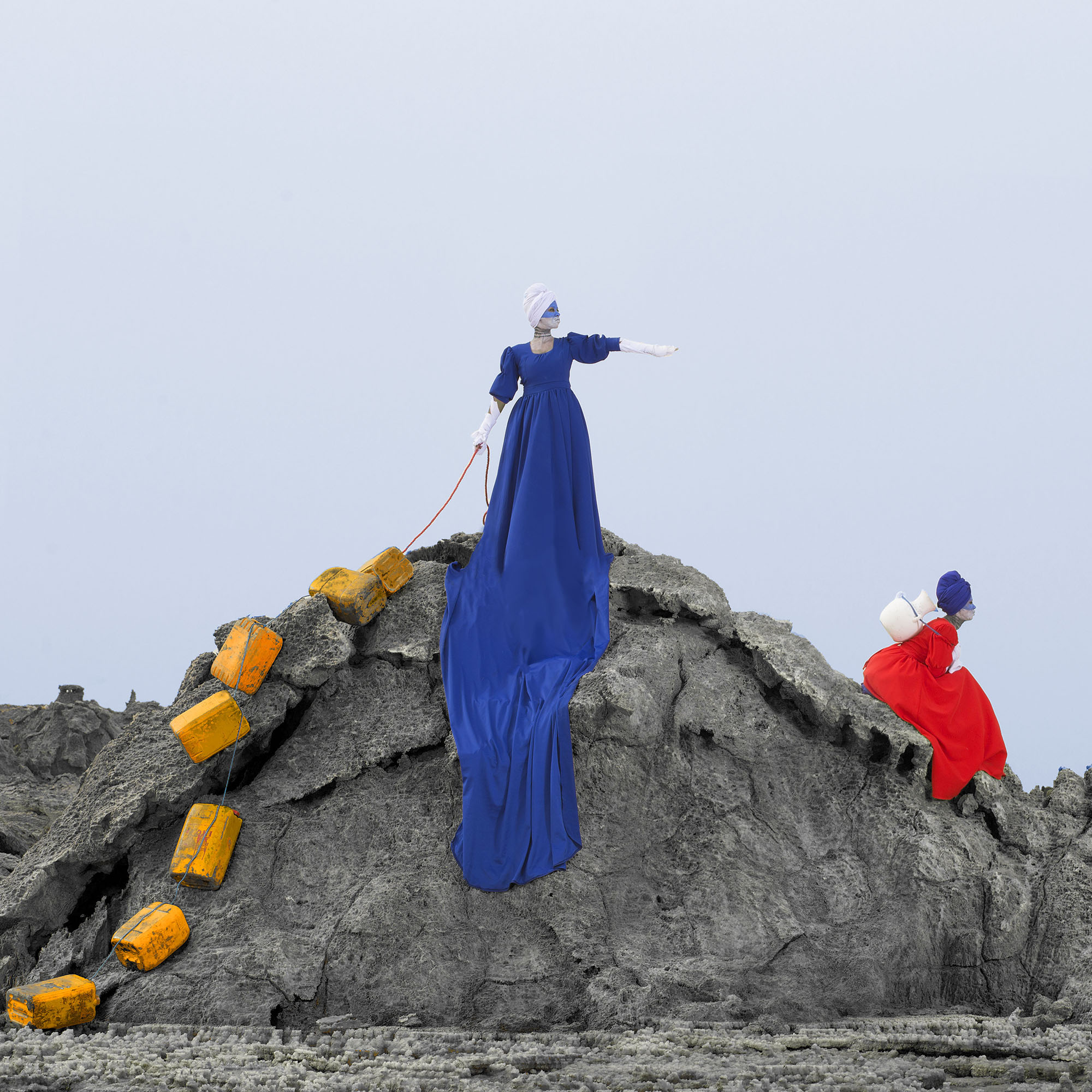
ida Muluneh, Knowing the Way to Tomorrow, 2018, photograph, courtesy the artist and Efie Gallery Dubai
“Aesthetically [my photographs represent] a different approach on representing social issues in Africa without the western cliché that continues to promote the one-sided story,” she explains. “I am utilising my creativity to express topics of interest through a different visual language. The basis of my work is rooted in realities that are expressed through an abstract visual form.”
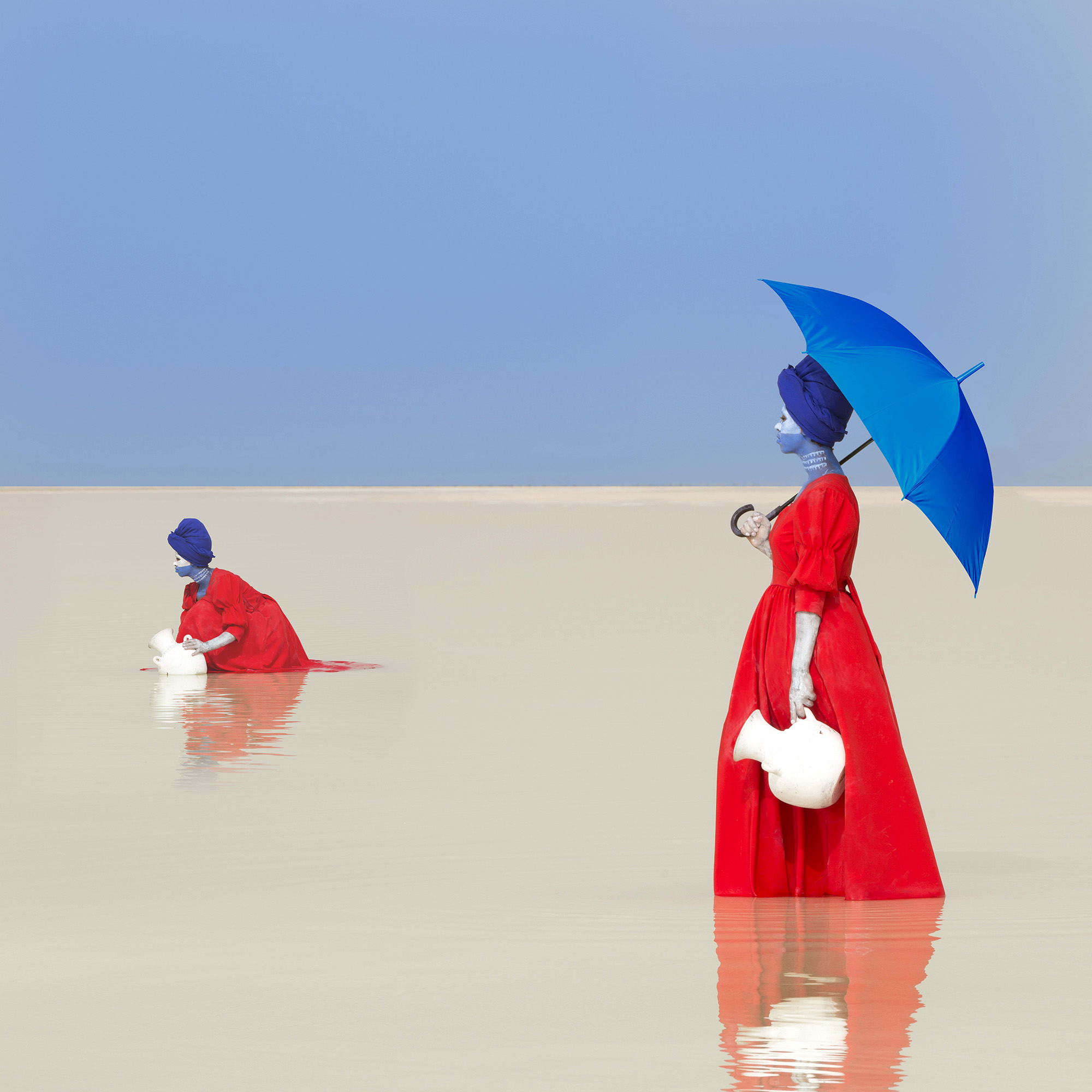
Aida Muluneh, Burden of the Day, 2018, photograph, courtesy the artist and Efie Gallery Dubai
Having creatively directed Efie Gallery’s solo exhibition titled ‘Shard Song’, showcasing the work of pioneering Ghanian artist El Anatsui, Muluneh’s own solo show at the gallery, titled ‘The Art of Advocacy’, is the continuation of an impactful collaboration, part of the gallery’s aim in representing and advancing both established and emerging artists from the African continent and its diaspora.
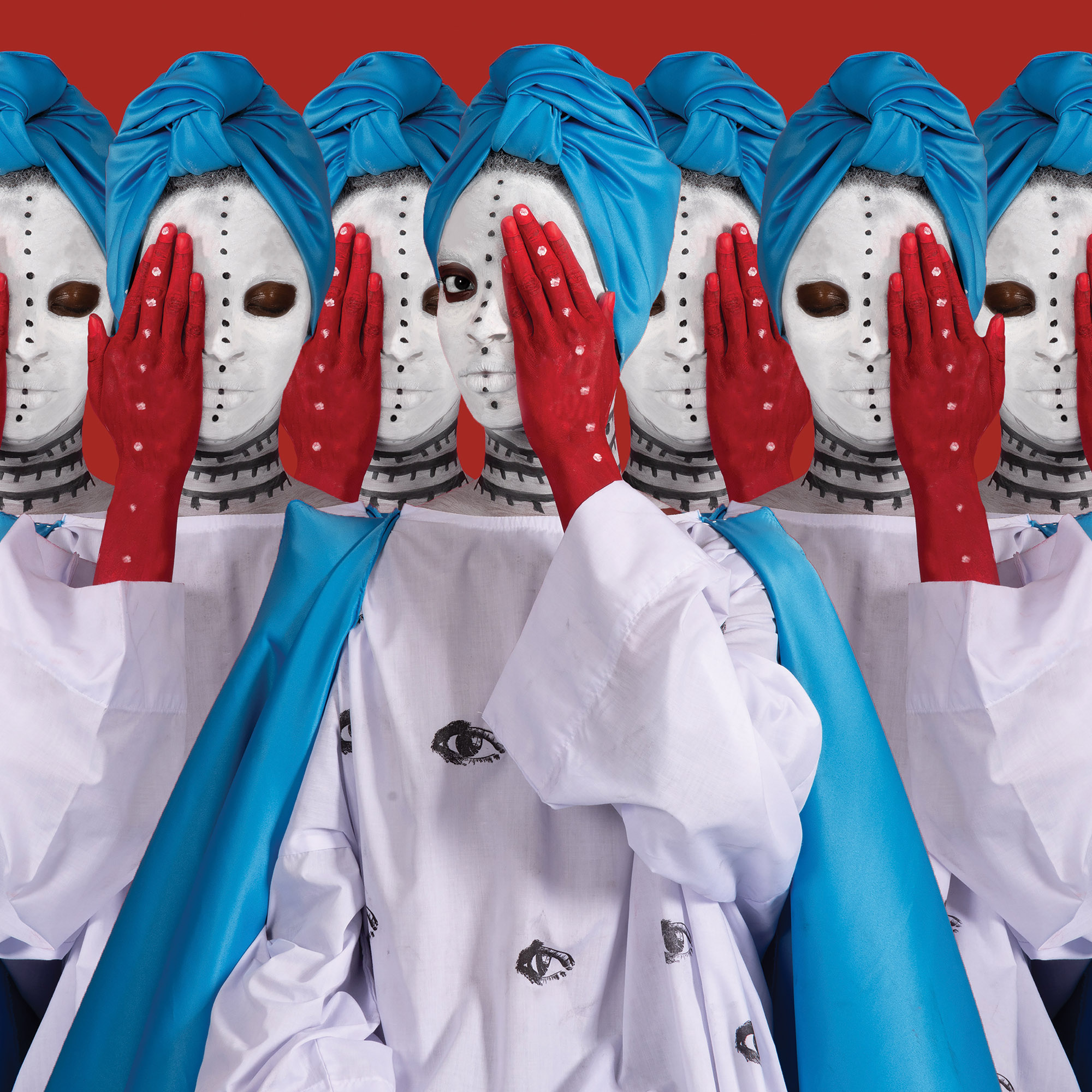
ida Muluneh, The Blind Gaze, 2021, photograph, courtesy the artist and Efie Gallery Dubai
“We as a family have long admired Aïda, both as an artist and an advocate, and her ethos aligns with the gallery’s vision – she is innovative and challenges norms while respecting traditions, [as] evidenced through the number of initiatives that she has found, including Addis Foto Fest,” say the founders of Efie Gallery, run by Valentina, Kobi and Kwame Mintah. Much like its name suggests, the collection at Efie Gallery – on show until 24 February 2023 – showcases commissioned works on the topics of advocacy relating to water scarcity, health and the plight of war. It is also the first time the artist is displaying a new piece of work in which she explores a new process of hand-painting acrylic on photographs.
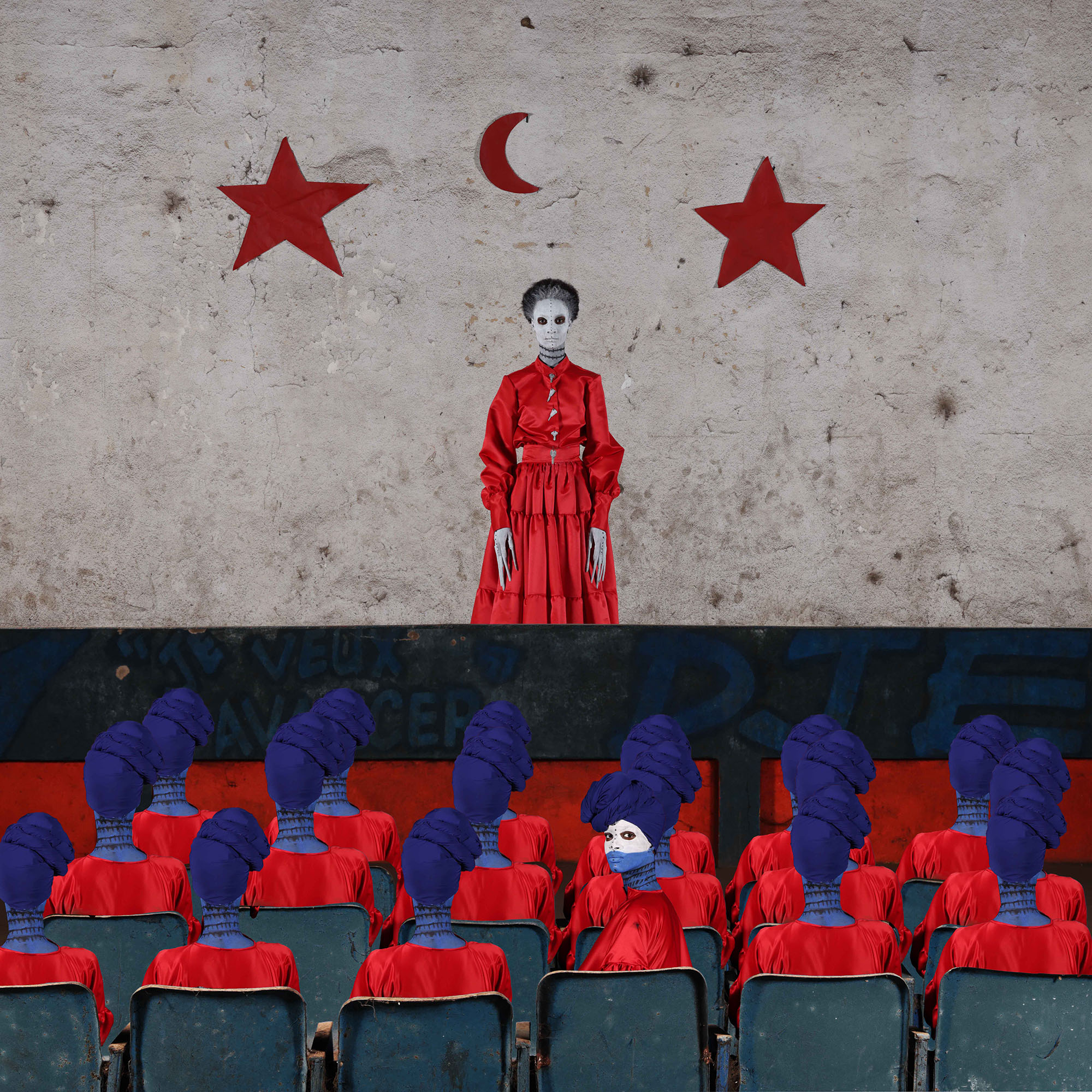
Aida Muluneh, The Great Lead Forward China, 2020,photograph, courtesy the artist and Efie Gallery Dubai
Also on display are works from her ‘Water Life’ (2018) series – commissioned by Water Aid – through which she addresses the plight of water access in rural regions and its impact on liberation, health, sanitation and education. Set in the arid salt flats of Dallol in northern Ethiopia, Muluneh draws from her own experience of regions where the transportation of water to various households falls on the women who do so by travelling on foot. The works advocate the urgent supporting of clean water in the rural regions of Africa.
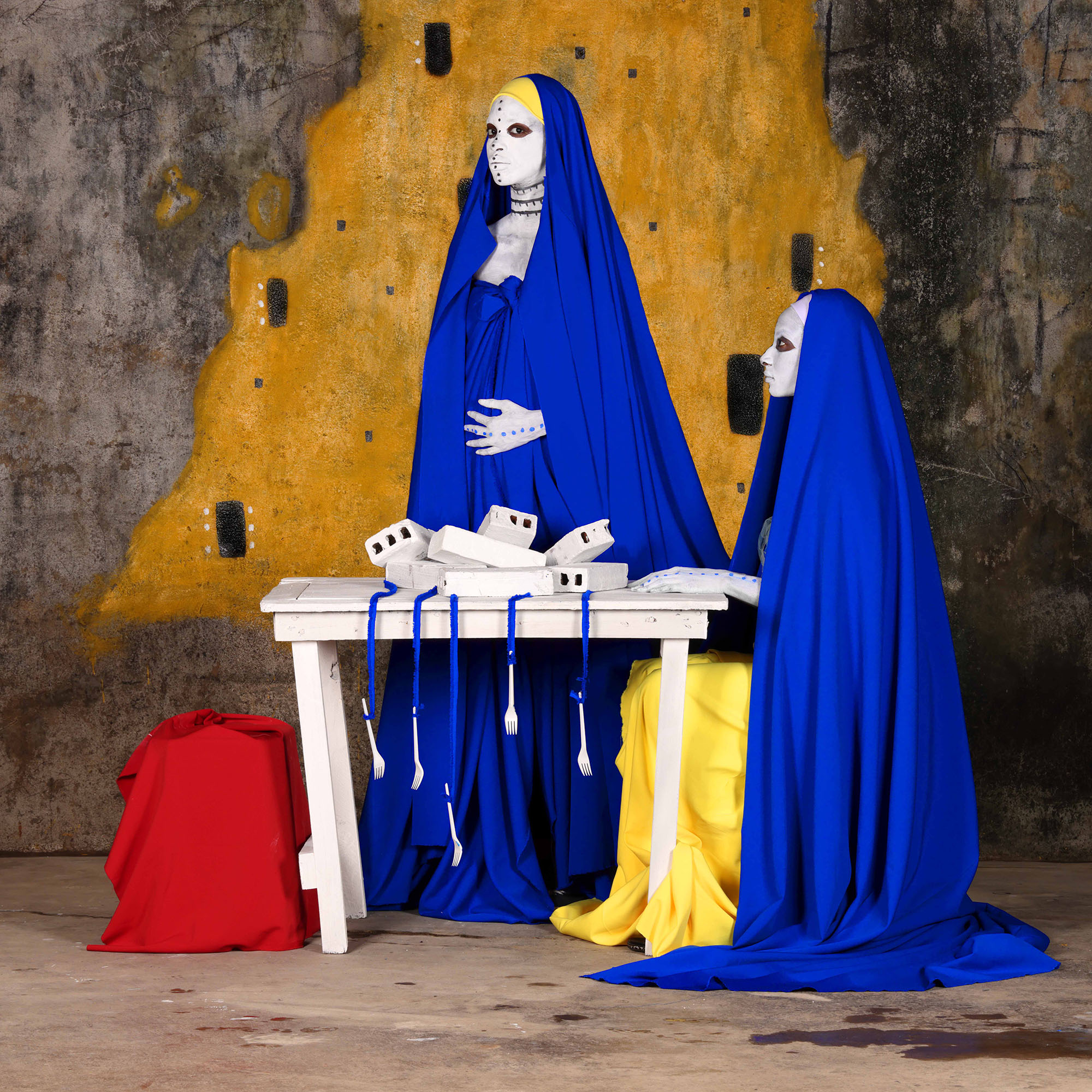
Aida Muluneh, The Silence of hope Syria, 2020, photograph, courtesy the artist and Efie Gallery Dubai
Another series, ‘The Crimson Echo’ (2021) – commissioned by The END Fund – highlights the impact of neglected topical diseases (NTDs) on gender equity, mental health, mobility and access to resources. Featuring insects and abstracted body parts, as well as elements of Ethiopian body ornamentation used to honour traditional knowledge and beliefs across Africa, the works look to dismantle bleak representations of the continent while provoking the viewer to question whom these diseases affect and why.
“My approach is to shed light on social issues that evoke questions in the viewer on [their] causes,” Muluneh concludes.
The Latest
Elevate Your Reading Space
Assouline’s new objects and home fragrances collection are an ideal complement to your reading rituals
All Aboard
What it will be like aboard the world’s largest residential yacht, the ULYSSIA?
Inside The Charleston
A tribute to Galle Fort’s complex heritage, The Charleston blends Art Deco elegance with Sri Lankan artistry and Bawa-infused modernism
Design Take: Buddha Bar
We unveil the story behind the iconic design of the much-loved Buddha Bar in Grosvenor House.
A Layered Narrative
An Edwardian home in London becomes a serene gallery of culture, craft and contemporary design
A Brand Symphony
Kader Mithani, CEO of Casamia, and Gian Luca Gessi, CEO of Gessi, reflect on the partnership between the two brands
The Art of Wellness
Kintsugi in Abu Dhabi, situated in a seven-storey villa, offers the ultimate zen retreat
Design Take: Inside the Royal Suite at Jumeirah Al Naseem
With sweeping views of the ocean and Burj Al Arab, this two bedroom royal suite offers a lush stay.
Elevated Living
Designed by La Bottega Interiors, this penthouse at the Delano Dubai echoes soft minimalism
Quiet Luxury
Studio SuCo transforms a villa in Dubailand into a refined home
Contrasting Textures
Located in Al Barari and designed by BONE Studio, this home provides both openness and intimacy through the unique use of materials
Stillness, Form and Function
Yasmin Farahmandy of Y Design Interior has designed a home for a creative from the film industry


